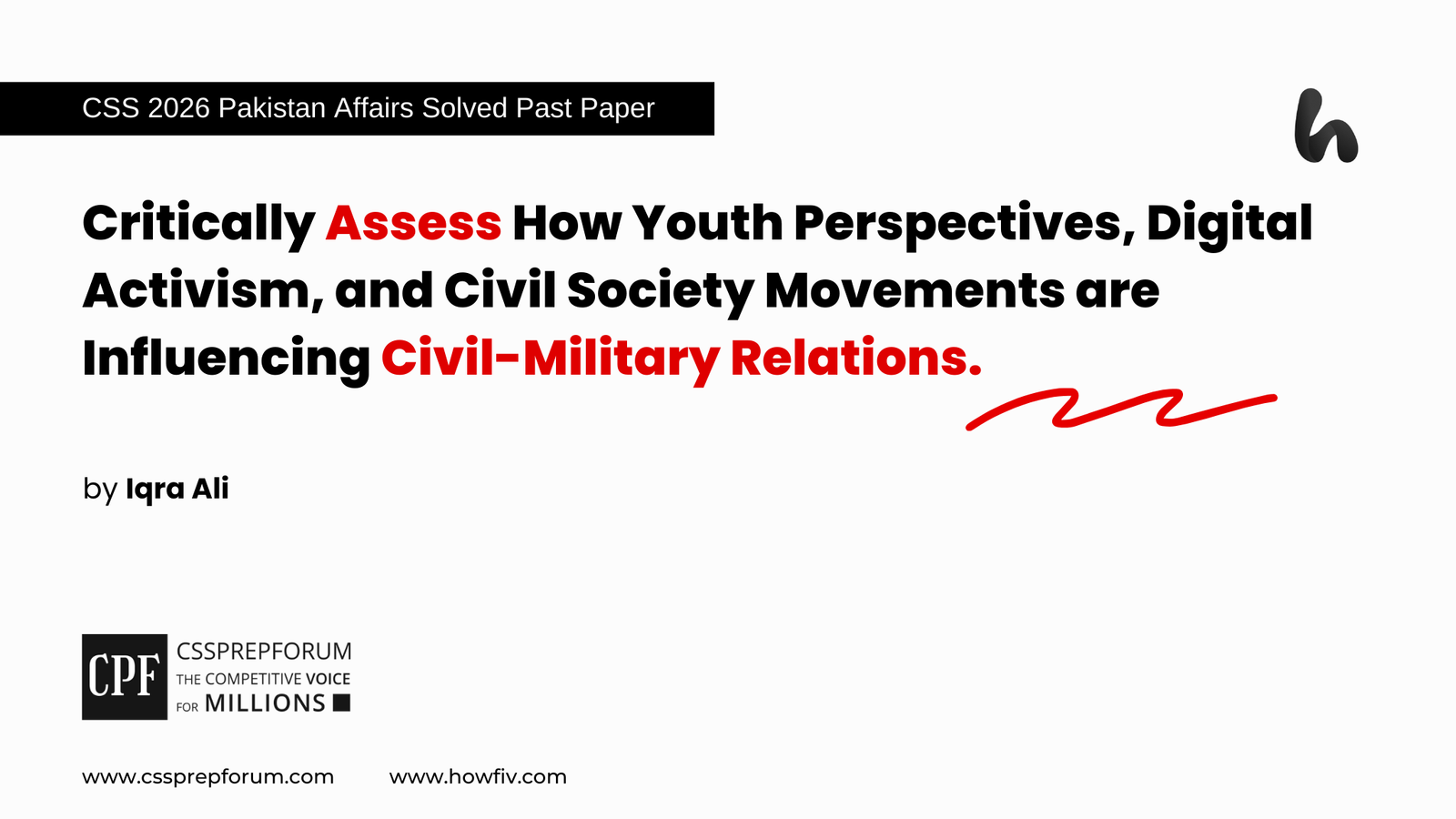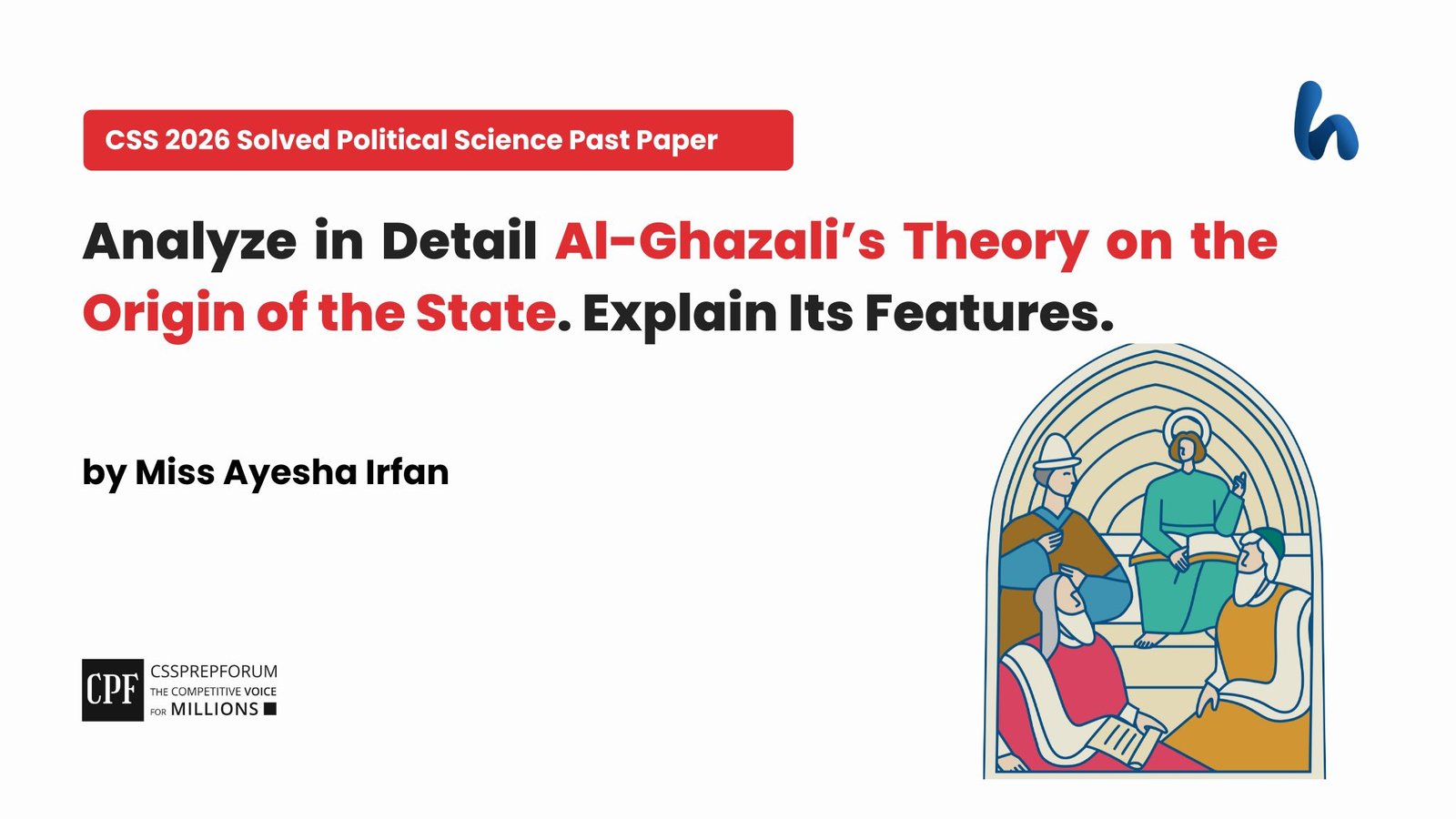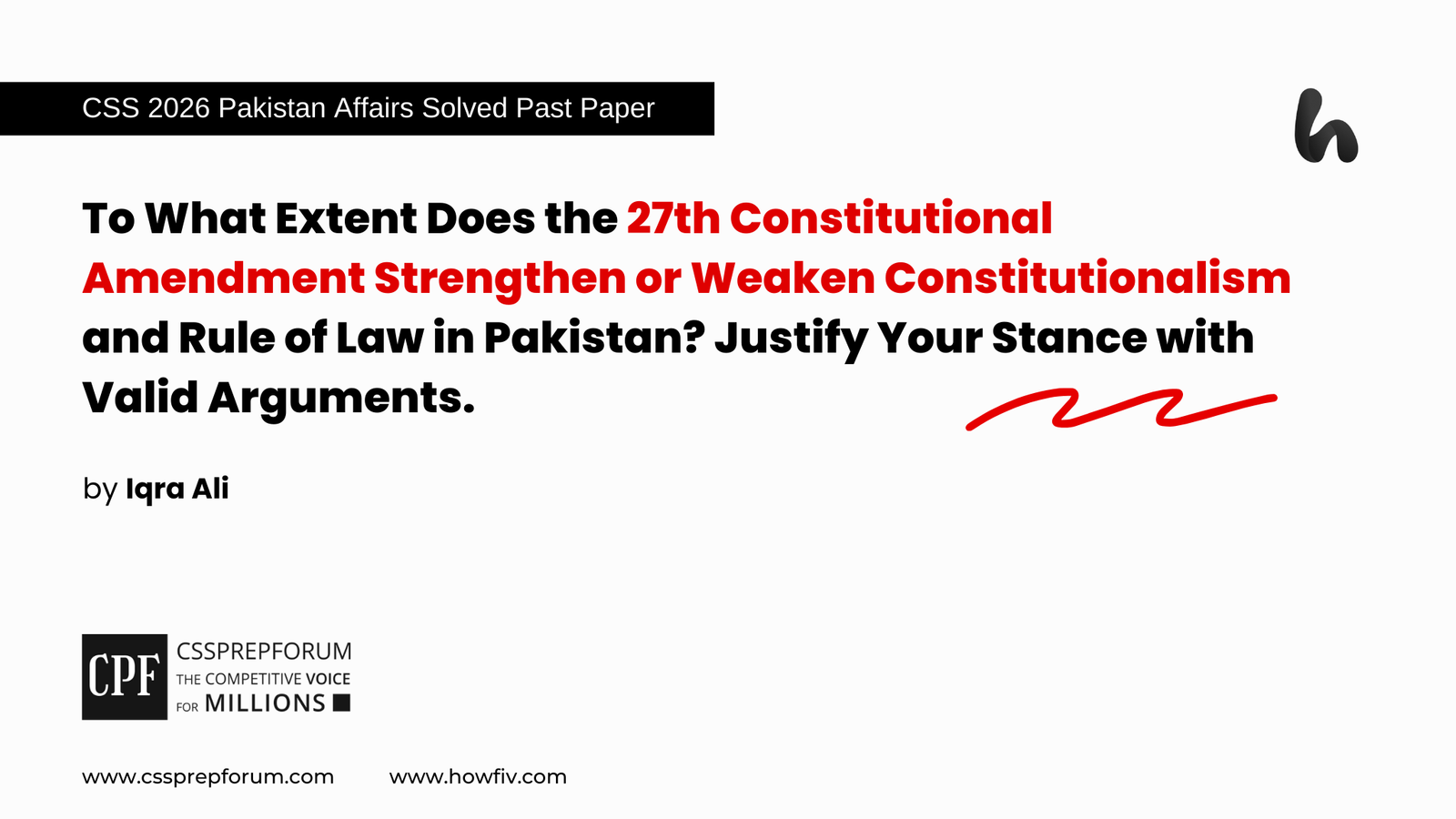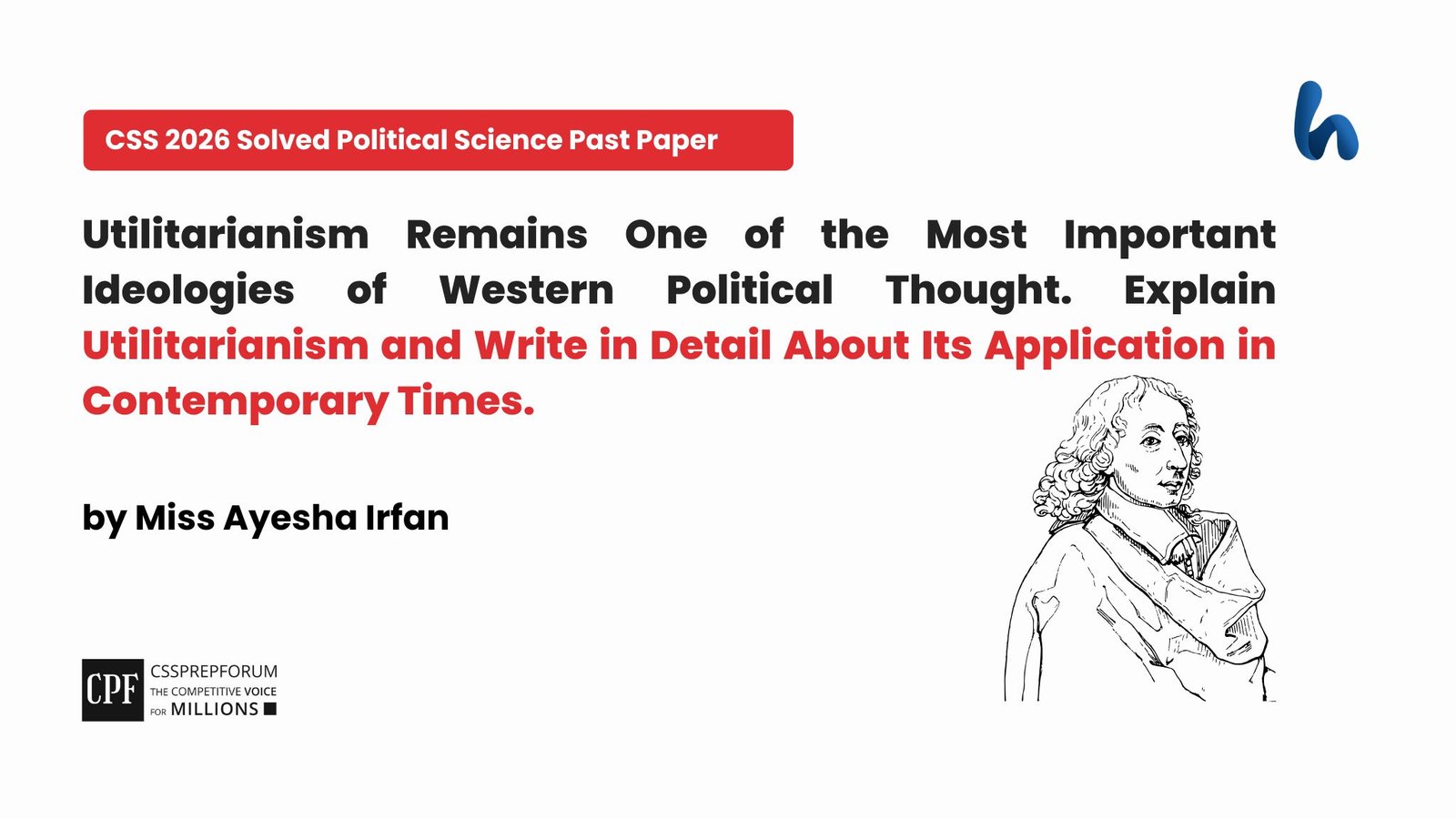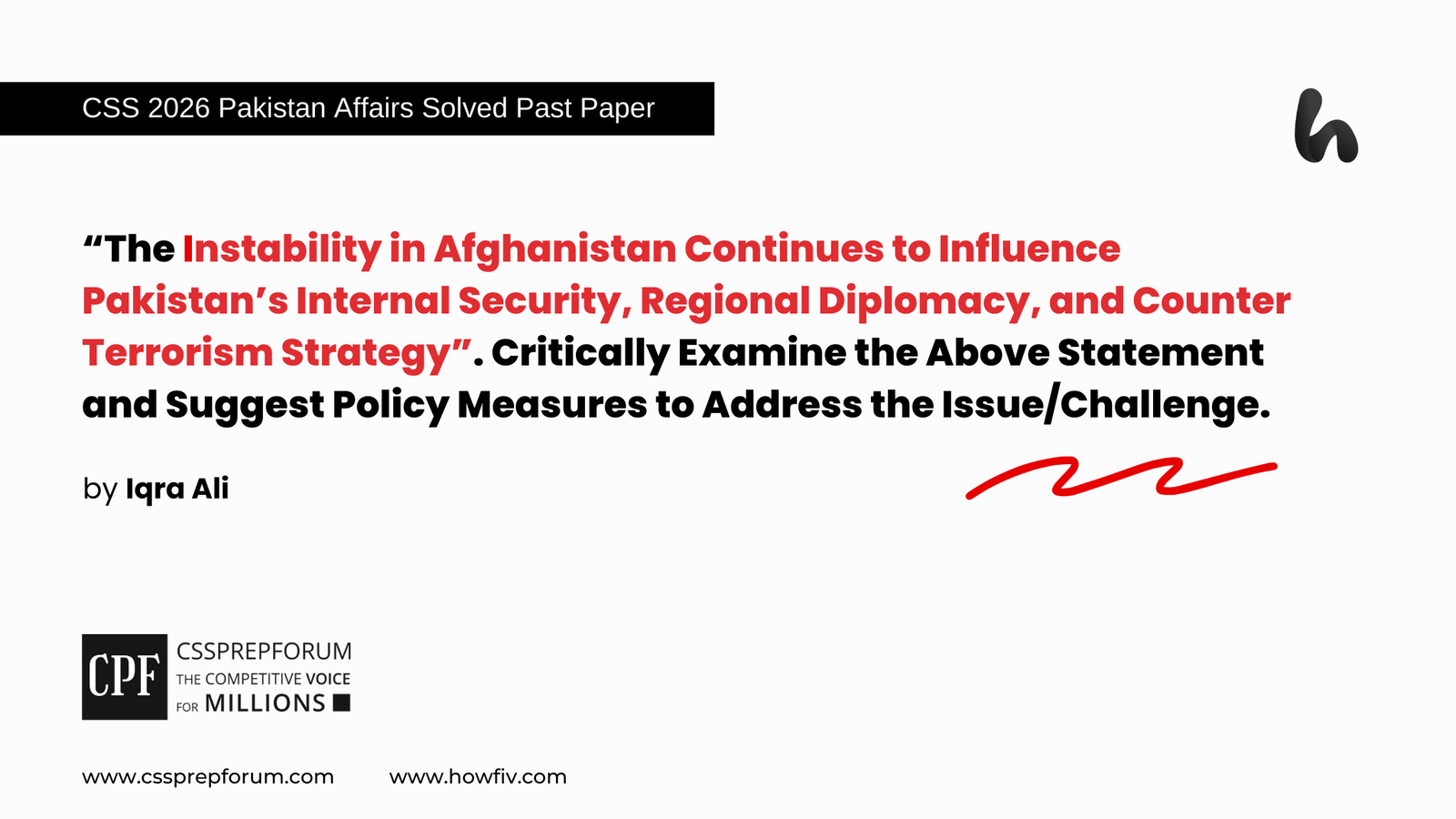CSS 2024 Solved Essay | Political Polarization: Governance and Society
Shahab Ahmad, a Sir Syed Kazim Ali student, has attempted the CSS 2024 Solved Essay “Political Polarization: Governance and Society” on the given pattern, which Sir Syed Kazim Ali teaches his students. Sir Syed Kazim Ali has been Pakistan’s top English writing and CSS, PMS essay and precis coach with the highest success rate of his students. The essay is uploaded to help other competitive aspirants learn and practice essay writing techniques and patterns to qualify for the essay paper.

Outline
1-Introduction
While issues like economic instability can hinder governance, political polarization, fuelled by social media and amplified by political discord, poses a more fundamental threat to the fabric of governance and societal structures by impeding legislation, fostering autocratic tendencies, and fracturing social cohesion.
2-Understanding political polarization
- ✓Elite polarization
- ✓Mass polarization
3-Unveiling the relation of political polarization with governance and society
4-How political polarization distorts the fabric of governance and society?
- ✓Political polarization catalysing legislative gridlock veiling important issues to be solved
- Case in point: Polarization between the African National Congress (ANC) and the opposition has stalled legislation on important issues like land reforms and economic development
- ✓Resulting erosion of democratic norms laying the ground for institutional imbalance
- Case in point: The Human Rights Watch reported an increasing threat to judicial independence and press freedom in Brazil because of the polarized political climate
- ✓Economic crisis driven by political polarization hindering governance efficiency
- Case in point: According to the International Monetary Fund’s report “Macroeconomic Stability and Governance”, because of lack of funds, economic volatility disrupts public administration, erodes public trust and weakens institutional capacity to implement the role of law
- ✓Political polarization weakening the government’s ability to curtail violence and crimes
- Case in point: A case study of Mexico, a glaring example
- ✓Undermining educational values because of political woes causing learning disparities.
- Case in point: The RAND Corporation report “Education in an era of political polarization” reflects the underfunding of educational institutes, compromised autonomy of teachers, contentious course content and learning disparities as the outcome of implications of political polarization on the education system.
- ✓Rising economic stagnation encouraging the brain drain
- Case in point: Following the wave of political turmoil as a result of a vote of no confidence (VONC), Pakistan’s Bureau of Emigration and Overseas Employment recorded the highest number of highly qualified nationals who left the country in 2022.
- ✓Deteriorating national integration and intensifying regional disparities
- Case in point: Separation of East Pakistan from its Western counterpart in 1971 as a result of fragile national integration driven by Political chaos
- ✓Political polarization fostering human rights abuse
- Case in point: The 2023 Amnesty International’s report “The State of the World’s Human Rights” emphasizes how political polarization drives human rights abuses by means of intimidating political opponents, media censorship and subjugating the role of law for political interests
5-On what grounds do critics argue that it is not always political polarization that destabilizes governance and society?
- ✓Counter argument: certain issues like economic instability, security concerns, and climate vulnerability have deeper ramifications on governance and society
- Refutation: Because of close and dynamic relations, political polarization has deeper impacts on governance and society
- Evidence: Venezuela’s political polarization has multifaceted implications for socioeconomic and political sectors
- Refutation: Because of close and dynamic relations, political polarization has deeper impacts on governance and society
6-Remedies to tackle political polarization
- ✓Constitutional supremacy
- ✓Culture of accountability
- ✓Media literacy
7-Critical analysis
8-Conclusion

The intersection of rising political volatility and widespread access to social media has intensified the phenomenon of political polarization. Instances of contention over controversial legislation or economic policies have heightened animosity toward political opposition, resulting in far-reaching consequences for a nation. Notably, the very foundation of governance and society faces sustained jeopardy from political polarization. Indeed, the impact of political polarization on the fabric of governance and social structures surpasses that of any other issue a country faces today. For instance, ideological clashes and divergent political agendas impede the legislative process, leading to legislative deadlock and obscuring crucial issues in need of resolution. Likewise, autocratic tendencies thrive amid political turmoil, undermining democratic values and fostering intolerance toward political adversaries. While some researchers argue that issues, such as economic instability and security concerns, disrupt the pace of governance and societal stability more frequently than political polarization, the latter undeniably holds greater sway in disrupting the fabric of governance and society. Take, for example, the case of the Sudan conflict, which arose from political chaos due to power struggles. The resultant deceleration of governance and societal fragmentation has subjected millions of individuals to the constant threat of autocratic rule and a decline in democratic practices. Thus, political polarization significantly impacts governance and societal structures. This essay delineates the diverse impact of political polarization in destabilizing governance and society.
Before interpreting how political polarization distorts the fabric of governance and society, it is pertinent to understand the key terms and their relationship with each other. Political polarization refers to increased divergence in political belief and hostility towards political opponents. To illustrate, certain factors like Gerrymandering, media partisanization and ideological extremes ignite the spark of political polarization. Categorically, it may be elite or mass polarization, where the former stands for clashes and antagonism between key political leaders because of ideological extremes, policy disputes, and political rhetoric. On the other hand, mass polarization based on identity politics, social media consumption, and ideological separation exists among the general population. Certainly, the relation of political polarization with governance and society is multifaceted and dynamic. Because of greater interaction among institutions and masses, inter-connectedness through social media, and being the subjects of policy making, governance mechanisms and social structures are largely vulnerable to the repercussions of political turmoil.
Analyzing the role of political polarization in destabilizing governance and society, it, in fact, has a major role in catalyzing legislative gridlock. To illustrate, political opponents and policymakers fail to achieve common ground for legislation on important issues because of ideological entrenchment and lack of bipartisanship. Similarly, because of political turmoil, filibustering flourishes, paving the way for controversial amendments and prolonging the legislation process, thereby preventing essential issues from being solved. Moreover, political gains exceeding the national interests hinder the efficiency of law-making agencies. For example, the political polarization between the African National Congress and the opposition has stalled legislation on important issues like land reforms and economic development. Thus, in this way, a legislative deficit arises, distorting the governance and society mechanism.
Similar to legislative gridlock, political polarization fosters the erosion of democratic values, creating an atmosphere of institutional imbalance and mistrust. For instance, diminishing dissent and mutual cooperation result in autocratic practices, undermining fundamental values. Similarly, discouraging democratic norms due to political turmoil hinders the process of checks and balances, which has hazardous outcomes for society regarding pressing fundamental rights like freedom of expression. Additionally, overriding institutional autonomy for political interests to suppress the opponents led to organizational paralysis. According to Human Rights Watch, Brazil’s polarised political climate has increased the threats to judicial independence and freedom of the press, paving the way for institutional inefficiency and paralyzing governance. Hence, society suffers in the form of compromised human rights, liberty, and justice.
Furthermore, through its profound ramifications driven by political polarization, economic instability halts governance efficiency. Primarily, inadequate funds for public spending hinder the provision of essential services like public safety and erode public trust, as evidenced by low investment in the era of economic vulnerability. Along with this, corruption flourishes in the country with economic turmoil, a major resistive force in implementing policies. Moreover, economic instability undermines institutions’ autonomy, paving the way for external forces to interfere, like political parties or non-government organizations, for personal interests. According to the International Monetary Fund’s report “Macroeconomic Stability and Governance”, because of lack of funds, economic volatility disrupts public administration, erodes public trust, and weakens institutional capacity to implement the rule of law. Hence, economic instability, driven by political polarization, brings governance efficiency to the knees using compromised institutional autonomy and functionality.
Along with that, take the case of Mexico, which has been experiencing political polarization for the past few decades. Indeed, the echoes of polarization have emerged from economic instability, populist narratives and social media. As a result, the country has to bear social fragmentation, intra-governmental divisions and an increasing rate of crimes. For sure, the significant repercussions of political polarization come at the cost of undermined efforts to curb violence and peacebuilding. For instance, according to a 2016 study, violence and crimes resulted at twice the rate when the municipalities are governed by parties in opposition at the state and local level. Similarly, according to a national data survey, 15% of Mexicans do not report crimes, manifesting the eroding public trust in institutions. On the other hand, the state of Yucatan has an impressively low rate of crimes and violence because of cohesive intra-governmental institutions and a smooth power transfer mechanism. Therefore, political polarization is a gateway to provide ample space to flourish crimes and violence because of weak state institutions.
Going forward, scrutinizing educational values because of political polarization causes learning disparities in many ways. To illustrate, monitoring what to teach and restricting teachers from political discussion in class discourages free speech and building analysis. Similarly, as a tactic to defame political opponents, altering the course of historical events halts the students’ access to facts, thus undermining their ability to perform critical analysis. Most importantly, the vulnerability of higher education to political activism rests in the form of campus protests that greatly destabilize academic progress. Additionally, infiltrating political divisions in educational institutes weakens meritocracy and erodes the fabric of the education system. Besides academic grounds, political turmoil results in disputes over educational policies and underfunding, thus widening the existing educational inequalities. The RAND Corporation report “Education in an Era of Political Polarization” reflects the underfunding of educational institutes, compromised autonomy of teachers, contentious course content, and learning disparities as the outcome of implications of political polarization on the education system. Thus, political polarization significantly destabilizes the mechanism of the education system, leading to teaching disparities and compromised teacher autonomy.
Moreover, economic stagnation driven by political chaos has multifaceted implications. For instance, reduced investment in public services like healthcare and education exacerbates income inequalities. Similarly, reduced economic mobility raises social unrest and frustration. Most importantly, because of economic woes, the dilemma of brain drain nurtures, which curbs political consciousness and hinders social mobility. For example, following the political turmoil after the no-confidence vote, Pakistan’s Bureau of Emigration and Overseas Employment recorded the highest number of highly qualified individuals leaving the country in 2022. Moreover, as a consequence of brain drain due to political polarization, corrupt and incompetent leadership governs that further escalates the deteriorating condition of the national economy. Therefore, economic instability propelled by political chaos derails the machinery of governance and society.
Additionally, political polarization exacerbates ethnic divisions, which deteriorates national integration and stimulates regional disparities. For instance, political segmentation and party affiliation erode social cohesion and national unity. Therefore, regionalism flourishes due to deepening divisions, which lags the national integration and paves the way for communal violence and conflicts. Similarly, ethnic crises nourish the atmosphere of political turmoil and trigger separatist movements. For example, the separation of the Eastern wing of Pakistan from its Western counterpart occurred as a result of ethnic divisions, separatism, and communal violence, facilitated by political polarization. Hence, it clearly shows that political polarization destabilizes the structure of governance and society through fragile national integration and regional disparities.
Moving ahead, political polarization is like an open pass to exploit the notion of national security using human rights abuse. From curbing freedom of speech by harassing journalists to extrajudicial killing and illegal detention, political polarization carries a broader spectrum of human rights violations. For instance, during political chaos, utilizing state institutions to intimidate political opponents and access their personal data and privacy violations become a norm in political backlashing. Similarly, for the perpetuation of populist narratives to disfranchise political oppositions, human rights activists and media channels are being threatened and experiencing censorship. Moreover, the 2023 Amnesty International report “The State of the World’s Human Rights” emphasizes how political polarization drives human rights abuses employing intimidating political opponents, media censorship, and subjugating the role of law for political interests. Thus, political polarization catalyzes the cruel practices of human rights violations, ranging from curbing freedom of speech to illegal detention and violence.
However, critics who challenge the role of factors contributing to the distorted fabric of governance and society always exist. According to some commentators, while political chaos derails the apparatus of governance and society, terrorism, violence, and climate vulnerability have more profound ramifications. For instance, terrorism and violence bail out the proliferation of extremist ideologies and social revolt. Similarly, climate-sponsored varying patterns of rainfalls and floods have disastrous impacts in the form of crops and infrastructure destruction, causing governance doldrums. Nonetheless, political polarization has a detrimental role in deteriorating the framework of governance and society. For example, Sudan’s crisis has emerged from political polarization as a result of a power struggle that shook the basic foundation of governance and society, leaving millions of people at the bay of foreign aid. Therefore, political polarization leads the rest when it comes to the distorted state of governance and society.
Moreover, critics argue that economic instability has broader implications on governance mechanisms and social framework. For instance, economic volatility hinders policy implementation and, thus, institutional functionality. Besides institutional malfunctions, economic woes foster social inequalities, ultimately disturbing social stability. Nevertheless, political polarization has multifaceted repercussions, as it is a precursor to economic woes and other socio-political issues. To illustrate, political turmoil has multi-dynamic impacts on society and governance, ranging from legislative gridlocks to social disparities, affecting socio-economic administration. Additionally, take the case of Venezuela, a country in Latin America that has had a history of political polarization for the past two decades. Because of intense political polarization, the government faces economic instability, skyrocketing inflation, corruption and social unrest, which have distorted the fabric of governance and social stability. Therefore, political polarization has multidirectional outcomes that undermine the effect of economic instability.
Critically analyzing, political polarization is detrimental to the effectiveness of governance and the stability of society. For instance, the disastrous outcomes of political turmoil in the form of fragile national integration, autocratic practices, and halted legislation hinder the cycle of governance delivery and society. To some extent, other factors like economic instability, security concerns, and climate change have drastic implications for governance and society. Nonetheless, political polarization has the upper hand because it distorts the fabric of governance mechanisms and social frameworks.
Conclusively, while economic instability, security concerns, and climate change undoubtedly challenge governance and social well-being, political polarization stands out as a particularly detrimental force. Its corrosive effects, evident in legislative gridlock, autocratic tendencies, and social fragmentation, weaken the very foundations of a functioning society. Witnessing cases like Venezuela and Sudan, where political turmoil fueled economic woes and social unrest, reinforces this claim. Therefore, addressing political polarization is crucial for fostering a healthy and stable society. By promoting bipartisanship, media literacy and open discourse, governments can rebuild trust in institutions and create a more unified national fabric. Only then can governance function effectively and society truly flourish.

CSS Solved Past Papers’ Essays
Looking for the last ten years of CSS and PMS Solved Essays and want to know how Sir Kazim’s students write and score the highest marks in the essays’ papers? Then, click on the CSS Solved Essays to start reading them.
CSS Solved Essays
CSS Solved General Science & Ability Past Papers
Want to read the last ten years’ General Science & Ability Solved Past Papers to learn how to attempt them and to score high? Let’s click on the link below to read them all freely. All past papers have been solved by Miss Iqra Ali & Dr Nishat Baloch, Pakistan’s top CSS GSA coach having the highest score of their students.


